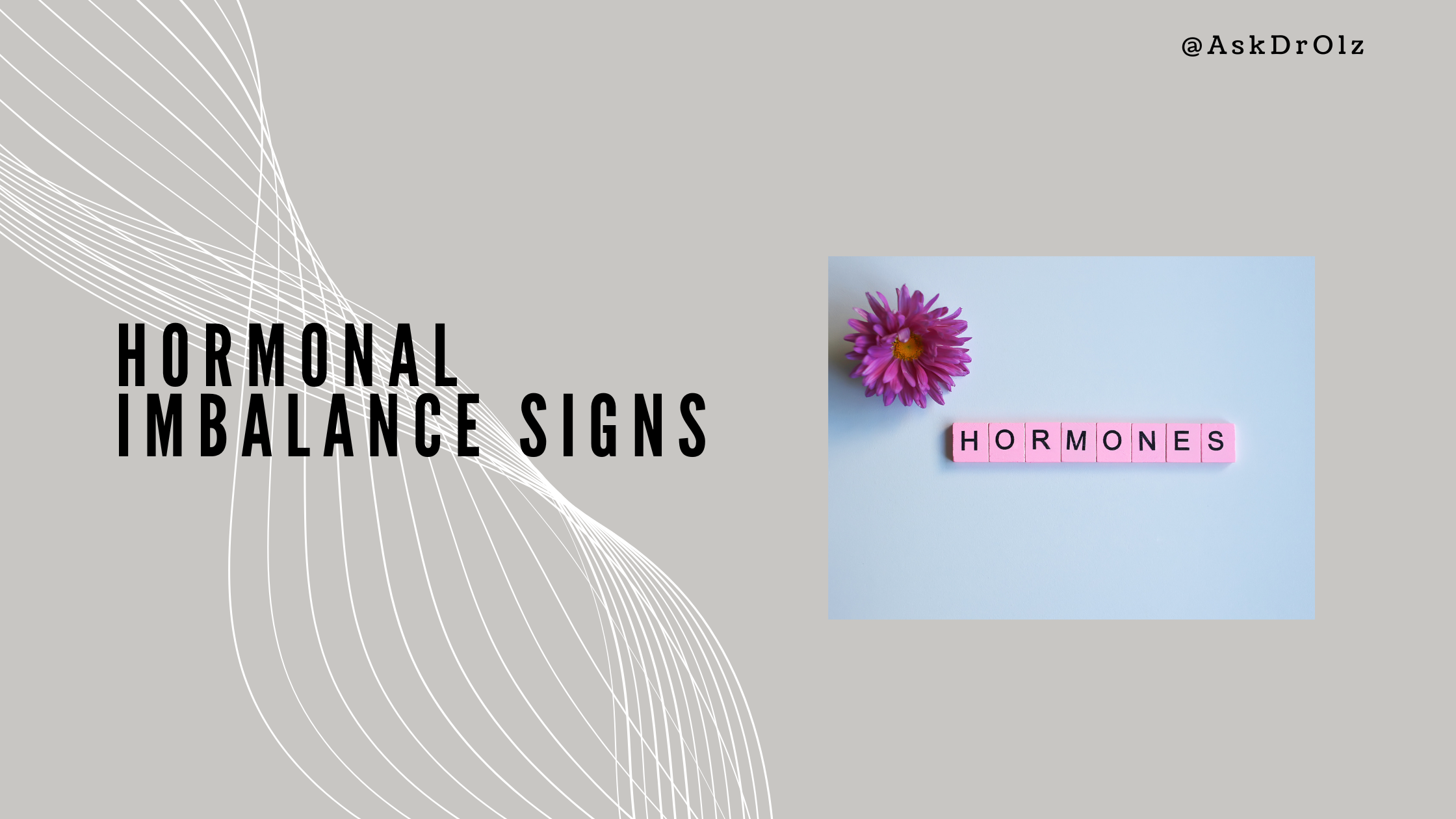
info@askdrolz.com
Ask Dr Olz (Pty) Ltd 505 West Avenue Ferndale, Randburg 2194 South Africa

Hormones play a vital role in keeping your body functioning optimally. They regulate everything from your metabolism and mood to sleep and reproductive health. When these chemical messengers go out of balance, they can trigger a host of symptoms that may affect your quality of life. In this blog, we’ll explore the most common hormonal imbalance signs to help you identify when your body might be asking for attention.
Hormonal imbalance occurs when there is too much or too little of a particular hormone in your bloodstream. Because hormones affect so many different functions, even slight imbalances can cause noticeable changes in your body.
Common causes of hormonal imbalance include stress, poor diet, lack of exercise, chronic illnesses, or age-related changes such as menopause or andropause.
Sudden weight gain or difficulty losing weight can be a telltale sign of a hormonal imbalance. For instance, excess cortisol (the stress hormone) can lead to fat accumulation around the abdomen, while low thyroid hormones may slow your metabolism, making it harder to shed pounds.
Feeling tired all the time, even after a good night’s sleep, might indicate issues with your thyroid, adrenal glands, or insulin levels. Hormones like cortisol and thyroid hormones are crucial for maintaining energy levels, and their imbalance can leave you feeling drained.
Hormones have a profound impact on your mental health. An imbalance in estrogen or progesterone, for example, can lead to mood swings, irritability, or heightened anxiety. Similarly, low serotonin levels (linked to hormonal shifts) can contribute to depressive symptoms.
For women, irregular periods are one of the clearest hormonal imbalance signs. This could stem from polycystic ovary syndrome (PCOS), thyroid disorders, or fluctuating levels of estrogen and progesterone.
Hair thinning or balding can be tied to low levels of estrogen or thyroid hormones, while excess hair growth on the face, chest, or back might be linked to high androgen levels, as seen in PCOS.
Did you know that your gut and hormones are closely connected? High cortisol levels can disrupt digestion, leading to symptoms like bloating, diarrhea, or constipation. Serotonin, often referred to as the “happy hormone,” also plays a role in gut health.
Difficulty falling asleep or staying asleep can be a result of imbalanced melatonin or cortisol levels. For instance, if cortisol remains elevated at night due to stress, it can interfere with your ability to wind down and rest.
Persistent acne, especially around the jawline, can signal hormonal imbalance. This is often related to fluctuations in androgens, which stimulate oil production and can clog pores.
A noticeable drop in sex drive could be linked to low levels of testosterone or estrogen. Hormonal shifts, particularly during menopause, can also affect sexual desire and satisfaction.
For those approaching menopause, hot flashes and night sweats are classic hormonal imbalance signs. These symptoms result from declining estrogen levels, which affect your body’s temperature regulation.
If you recognize any of these hormonal imbalance signs, it’s important to take action. Here are some steps to consider:
Recognizing the signs of hormonal imbalance early can make a big difference in your overall well-being. By paying attention to your body and seeking professional guidance when necessary, you can take proactive steps to restore balance and feel your best. If you suspect a hormonal imbalance, don’t hesitate to seek help—your health is worth it.
Subscribe below to explore more related content!

My mission is to empower individuals to achieve optimal health through holistic and integrative care. We are committed to providing personalized telehealth consultations and premium wellness products that support and enhance your well-being.
WhatsApp us